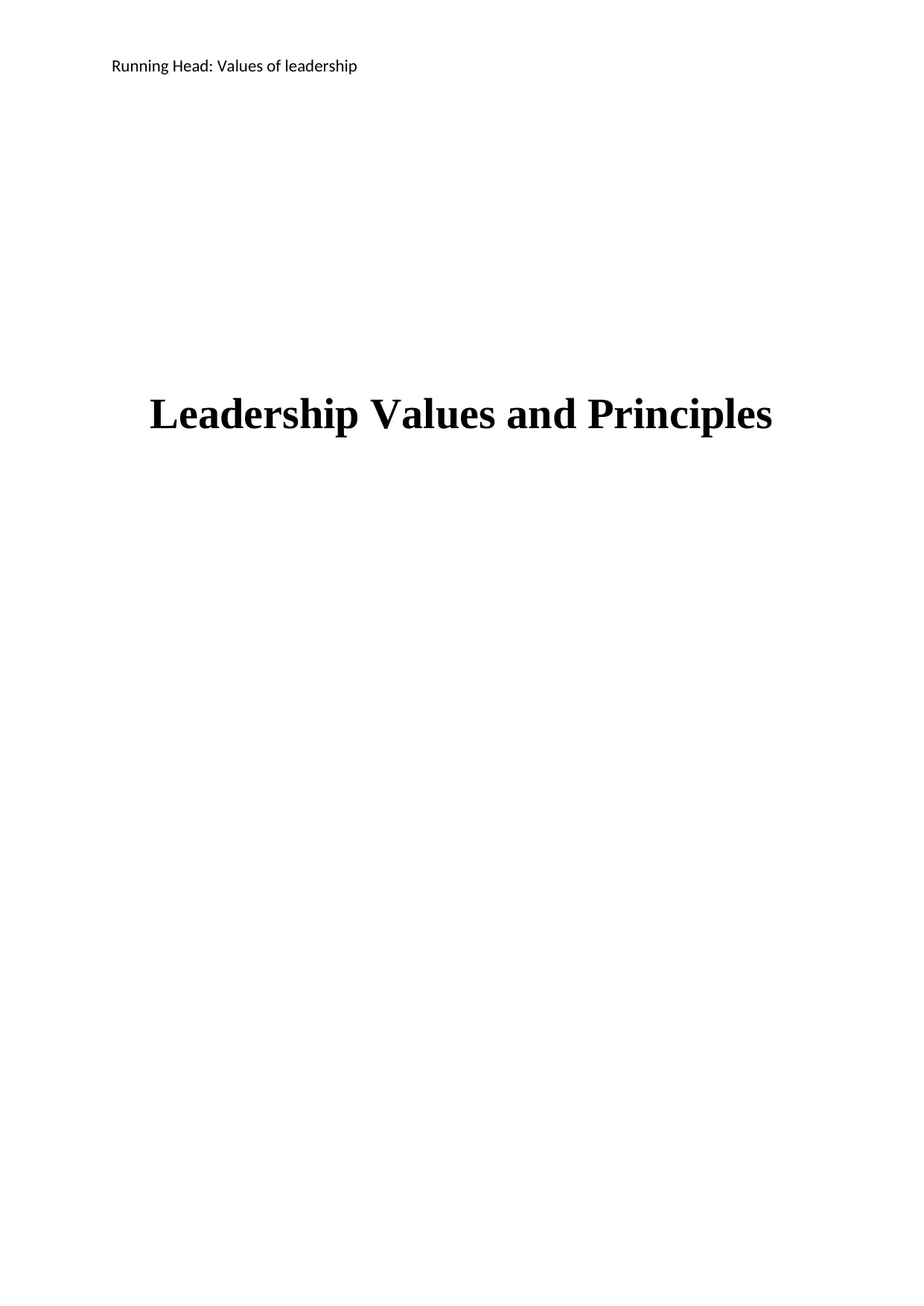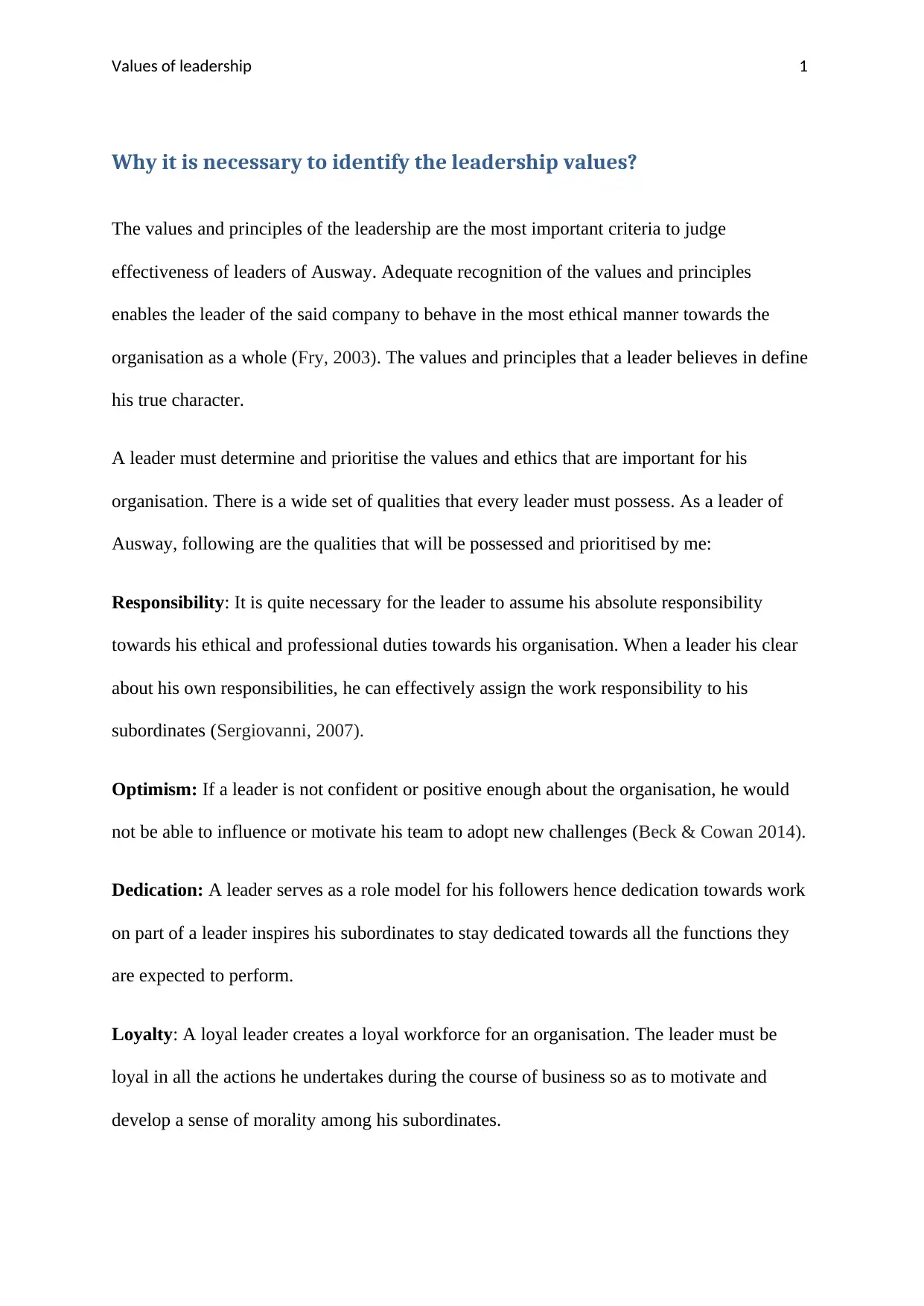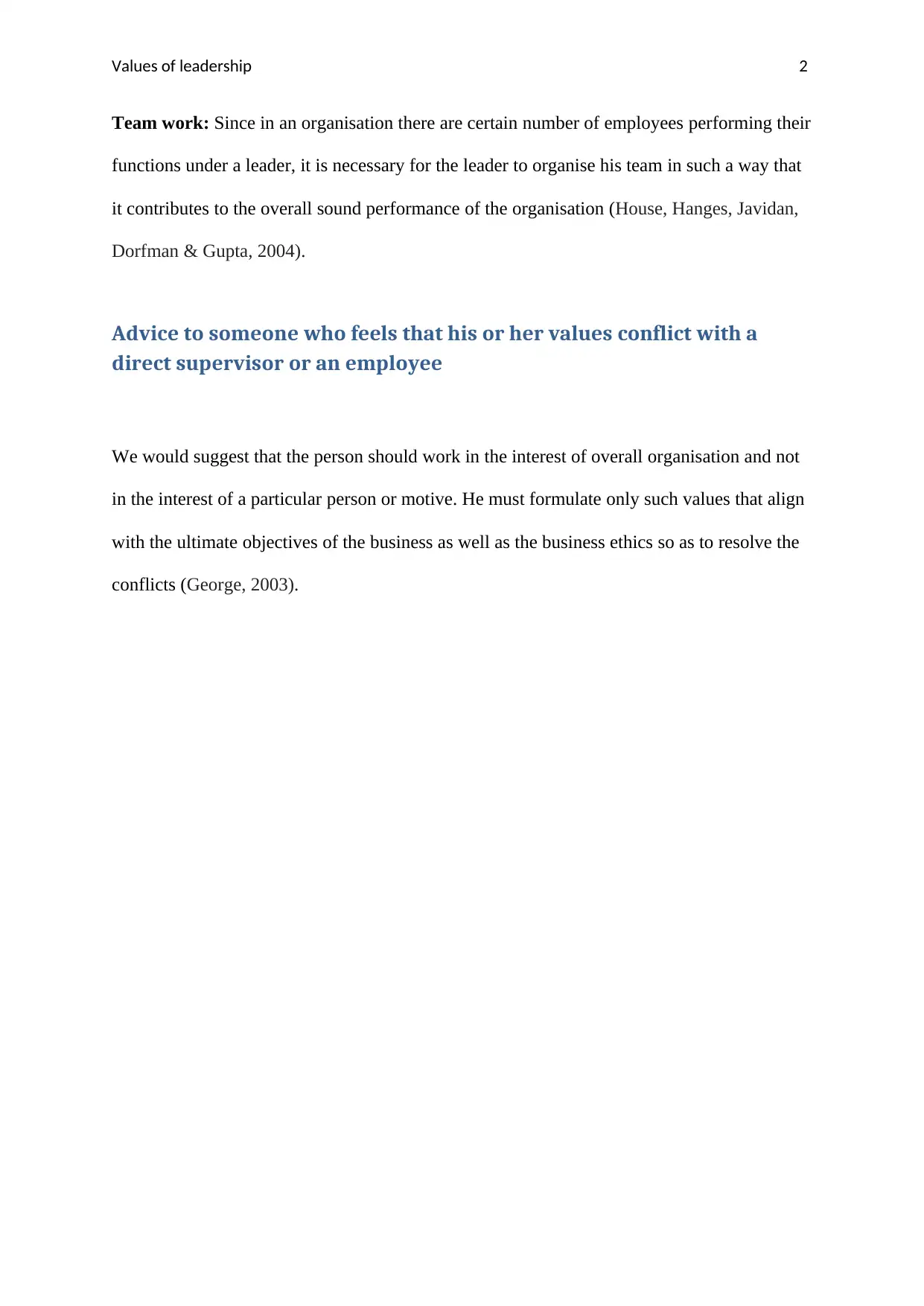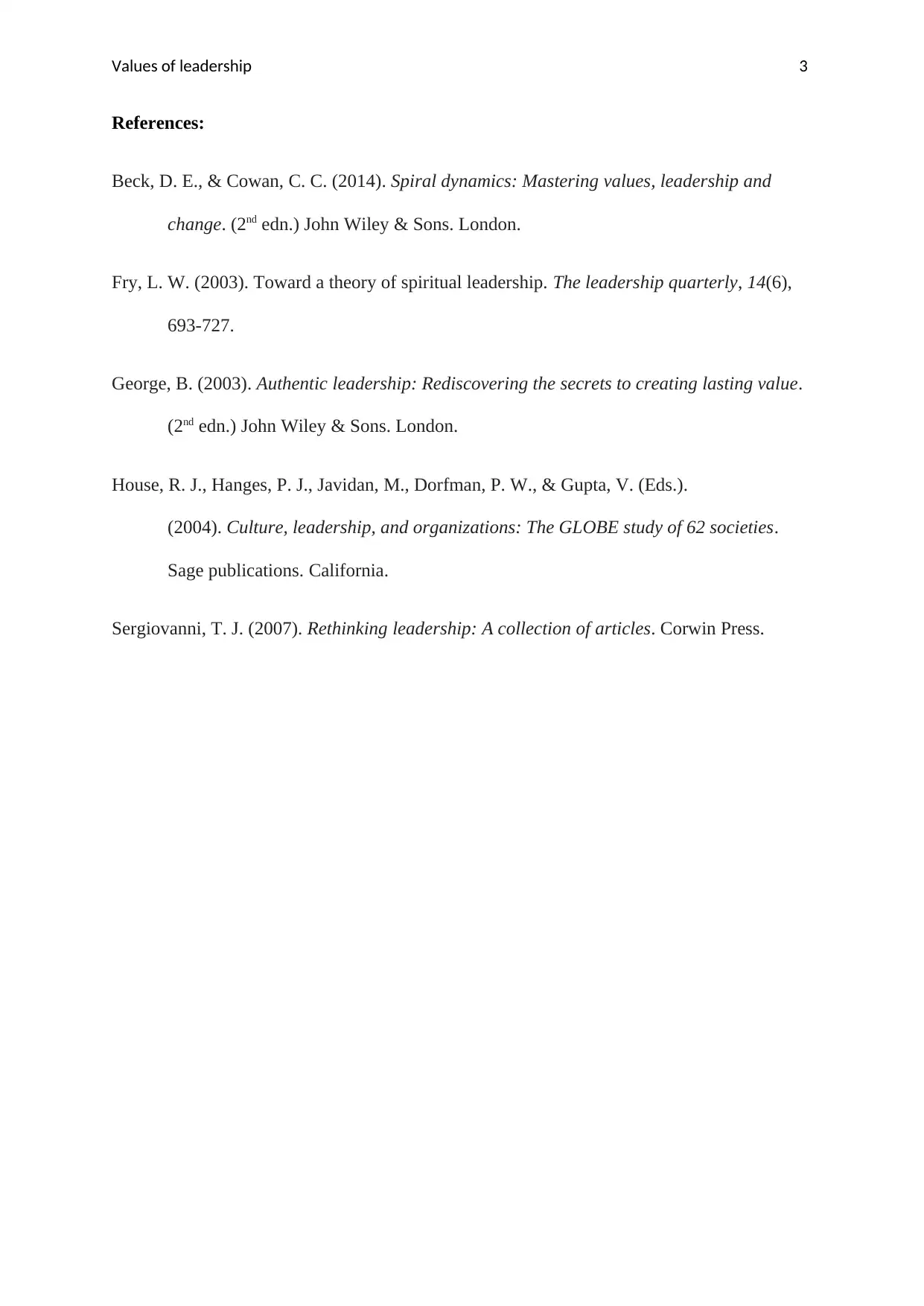Analyzing Leadership Values & Principles: The Ausway Perspective
VerifiedAdded on 2023/06/10
|4
|617
|391
Essay
AI Summary
This essay discusses the critical importance of identifying and prioritizing leadership values and principles, particularly within the context of an organization like Ausway. It emphasizes the role of these values in shaping ethical leadership and guiding decision-making. Key values such as responsibility, optimism, dedication, loyalty, and teamwork are highlighted as essential qualities for a leader. The essay also provides advice on resolving conflicts between personal values and those of supervisors or employees, advocating for decisions aligned with overall organizational objectives and ethics. References to relevant academic literature support the arguments presented.
1 out of 4





![[object Object]](/_next/static/media/star-bottom.7253800d.svg)